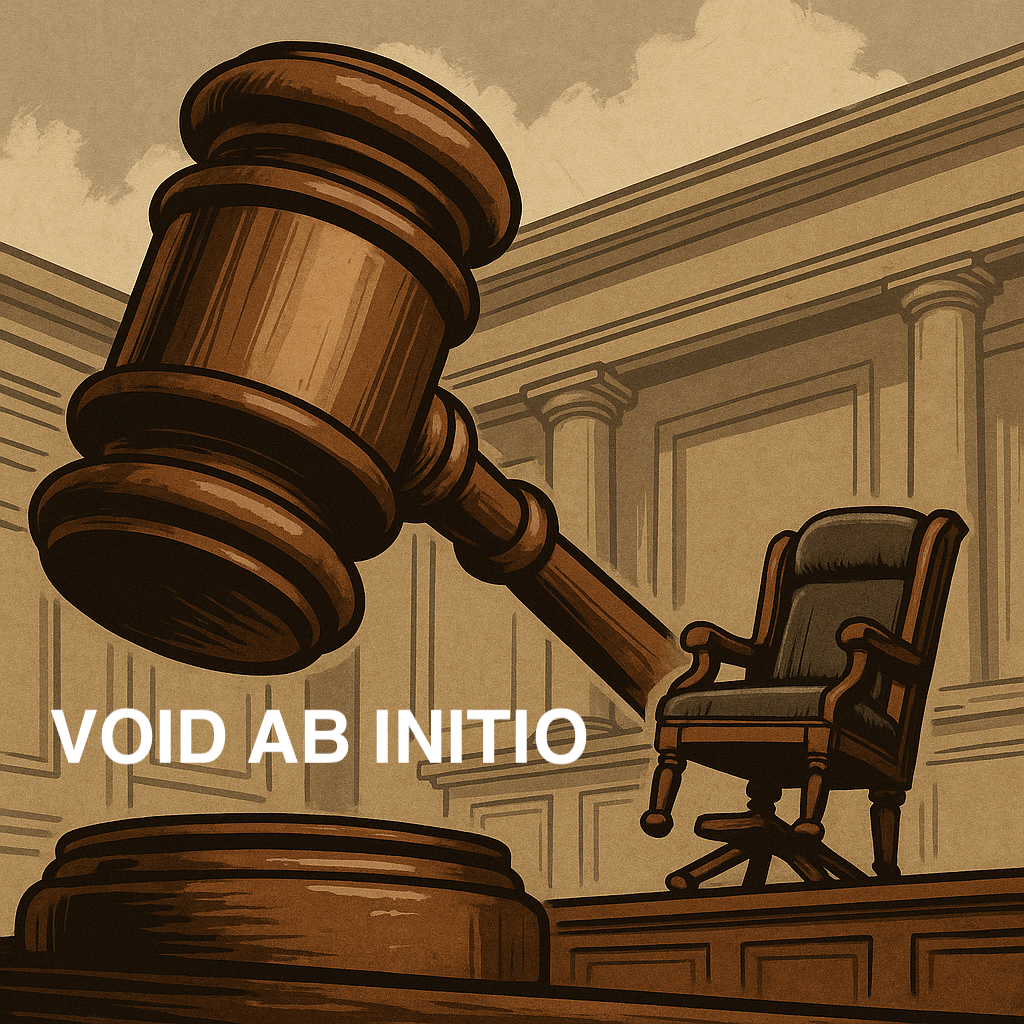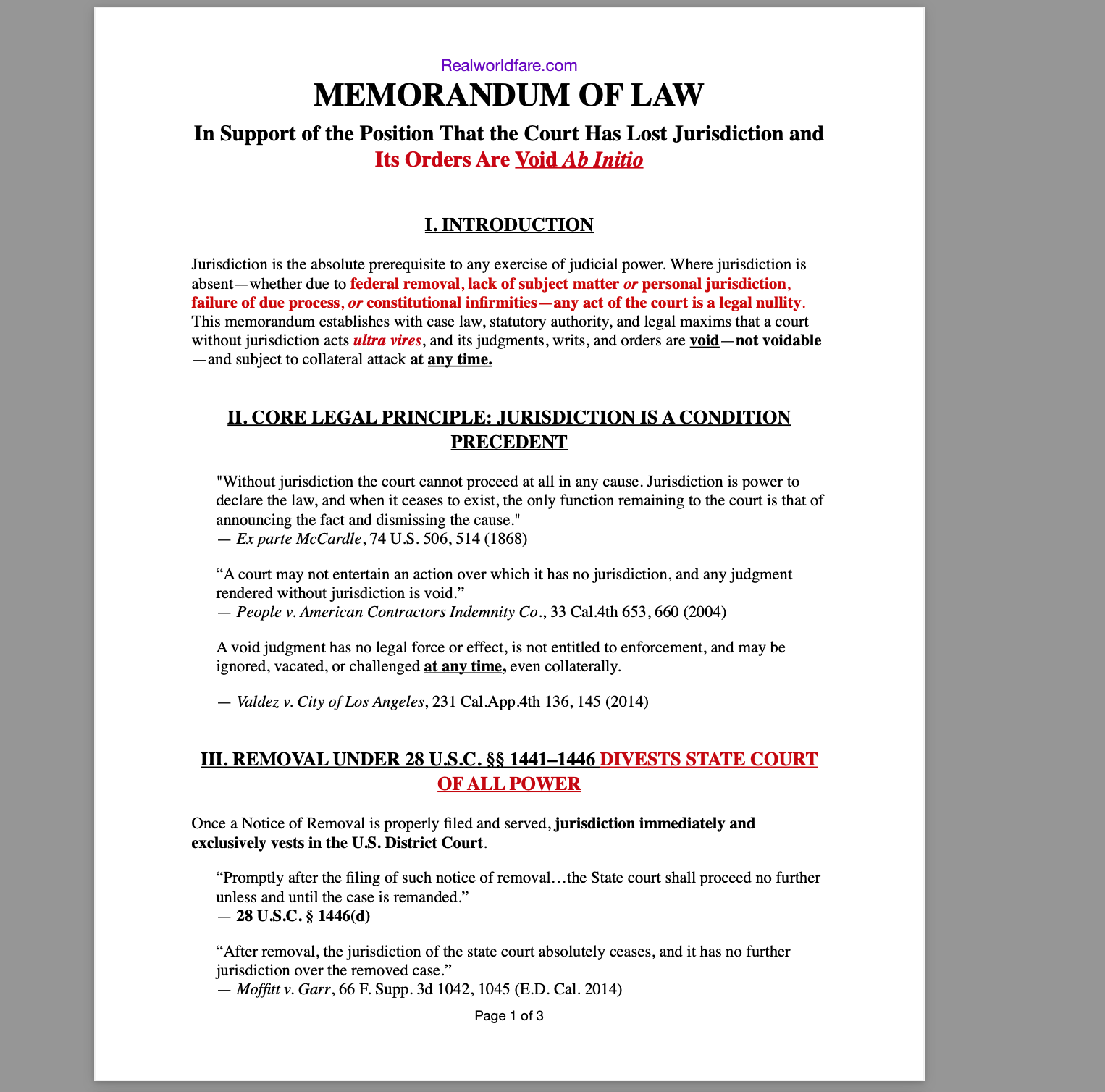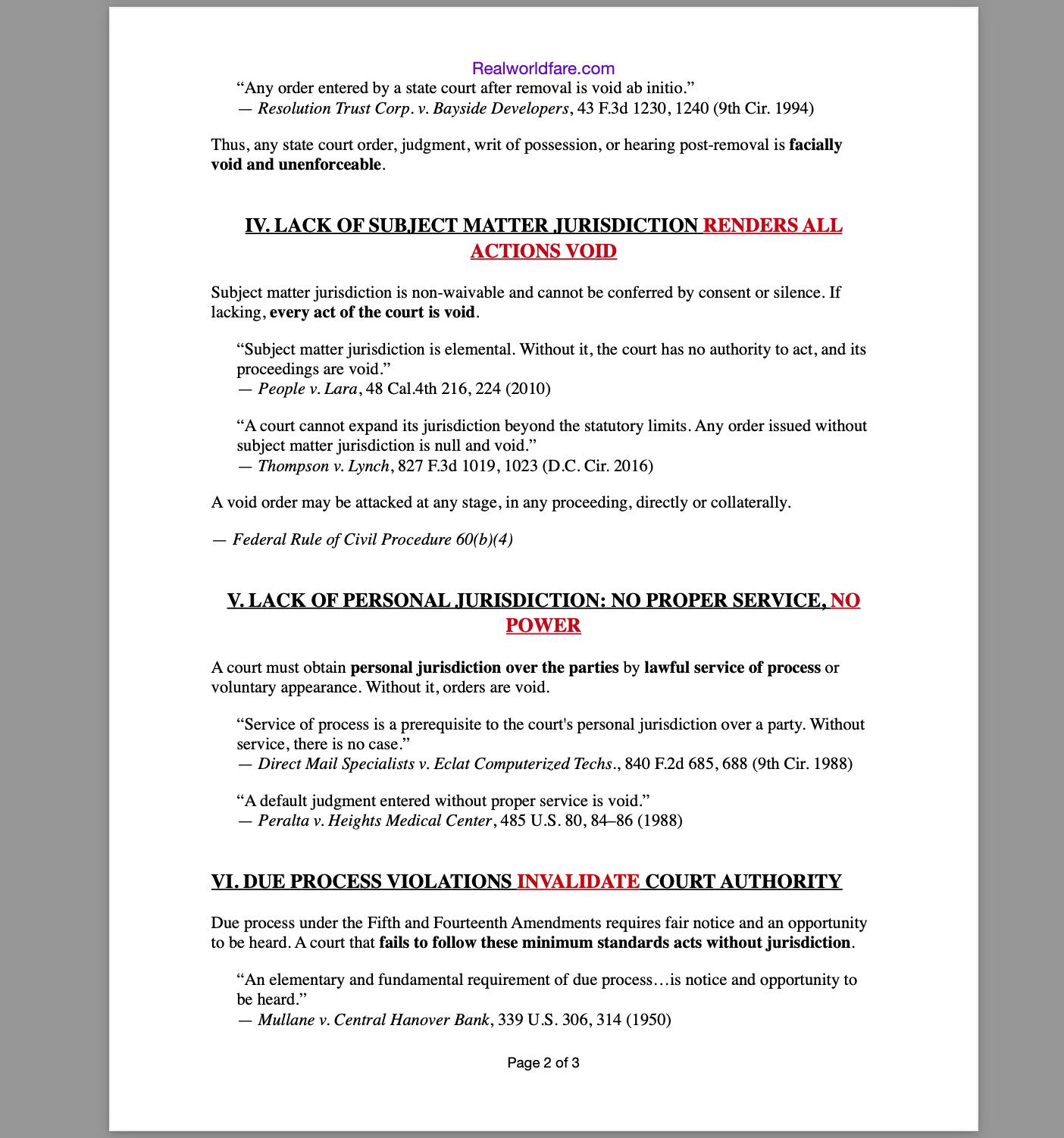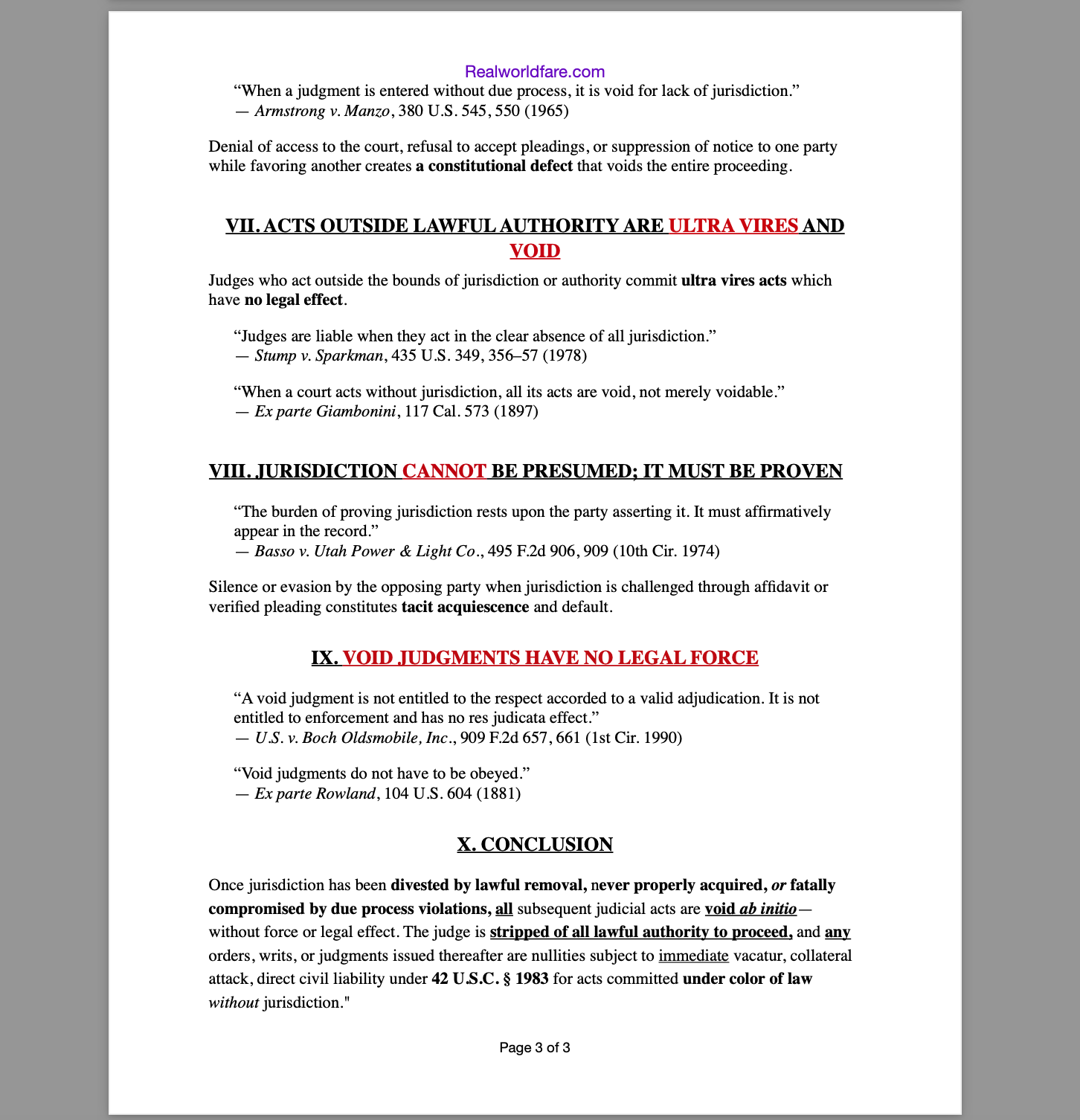Introduction
In American jurisprudence, jurisdiction is not a mere procedural formality — it is the bedrock of judicial power. No matter how official a courtroom may appear, no matter how confident the robe behind the bench may act, a judge without jurisdiction is not a judge at all. Every order issued in the absence of jurisdiction is void ab initio — not voidable, not questionable — legally nonexistent from the start. The consequences are profound.
This article explores what happens when jurisdiction is divested, never lawfully established, or corrupted by constitutional violations. It exposes how any judicial act under those conditions becomes not only unenforceable, but the foundation for personal liability under 42 U.S.C. § 1983.
Jurisdiction: The Threshold Question
Jurisdiction is threefold:
-
Subject Matter Jurisdiction – The court’s legal power to hear a specific kind of case.
-
Personal Jurisdiction – The court’s authority over the individual or entity brought before it.
-
Territorial Jurisdiction – The geographic boundaries within which the court can lawfully act.
All three must exist. Without even one, the court cannot proceed.
“Without jurisdiction, the court cannot proceed at all in any cause. Jurisdiction is power to declare the law, and when it ceases to exist, the only function remaining is that of announcing the fact and dismissing the cause.”
— Ex parte McCardle, 74 U.S. 506, 514 (1868)
Removal to Federal Court Strips State Court Jurisdiction
When a defendant or real party in interest properly files a Notice of Removal under 28 U.S.C. §§ 1441–1446, jurisdiction vests exclusively in the U.S. District Court. The state court must halt immediately.
28 U.S.C. § 1446(d):
“…the State court shall proceed no further unless and until the case is remanded.”
If the state judge proceeds anyway, that judge is acting without jurisdiction, and all resulting orders are void ab initio.
“After removal, the jurisdiction of the state court absolutely ceases.”
— Moffitt v. Garr, 66 F. Supp. 3d 1042 (E.D. Cal. 2014)
Void for Lack of Subject Matter Jurisdiction
No amount of litigation, motions, or time can cure the fatal flaw of subject matter jurisdiction. If a court is not empowered by law to hear the type of case before it, its rulings are void from inception.
“Subject matter jurisdiction is elemental. Without it, the court has no authority to act, and its proceedings are void.”
— People v. Lara, 48 Cal. 4th 216 (2010)
Void judgments are not entitled to deference, enforcement, or finality.
“A void judgment is a legal nullity, and may be challenged at any time.”
— Valdez v. City of Los Angeles, 231 Cal.App.4th 136 (2014)
No Personal Jurisdiction Without Valid Service
Courts do not gain personal jurisdiction by assumption. Lawful service of process or voluntary appearance is required. If service is defective or nonexistent, any resulting order is void.
“A court may not exercise personal jurisdiction over a defendant unless the defendant has been properly served.”
— Direct Mail Specialists, Inc. v. Eclat Computerized Technologies, Inc., 840 F.2d 685 (9th Cir. 1988)
Due Process Violations Nullify Judicial Authority
Even when subject matter and personal jurisdiction appear intact, a court that denies basic due process — including notice and an opportunity to be heard — acts outside the law. Due process is non-negotiable.
“Failure to provide a party with an opportunity to be heard violates due process and renders judgment void.”
— Peralta v. Heights Medical Center, 485 U.S. 80 (1988)
“When a judgment is entered without due process, it is void for lack of jurisdiction.”
— Armstrong v. Manzo, 380 U.S. 545 (1965)
Void Acts Carry Legal Consequences — Including Liability
Once jurisdiction is absent or has been extinguished, any judicial act is ultra vires. The judge is acting personally, under color of law, and becomes civilly liable.
“Judges are liable when they act in the clear absence of all jurisdiction.”
— Stump v. Sparkman, 435 U.S. 349, 356–57 (1978)
“A void judgment is not entitled to the respect accorded to a valid adjudication. It is not entitled to enforcement and has no res judicata effect.”
— U.S. v. Boch Oldsmobile, Inc., 909 F.2d 657, 661 (1st Cir. 1990)
42 U.S.C. § 1983:
Any person who, under color of any statute, ordinance, regulation, custom, or usage, subjects another to the deprivation of rights… shall be liable to the party injured in an action at law, suit in equity, or other proper proceeding for redress.
This means that a judge who acts without jurisdiction is no longer protected by judicial immunity and may be sued directly.
Conclusion: Void Means Void
No judicial robe, gavel, or courtroom can substitute for jurisdiction. Once jurisdiction has been divested, never lawfully obtained, or corrupted by constitutional defects, the court’s authority evaporates. Its orders carry no legal weight. The judge becomes a private actor subject to civil liability, sanctions, and potential federal remedy.
The law is not vague on this point — it is unequivocal:
Void means void. And void acts cannot stand.







